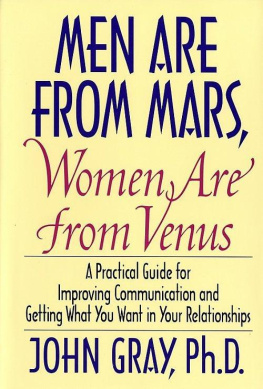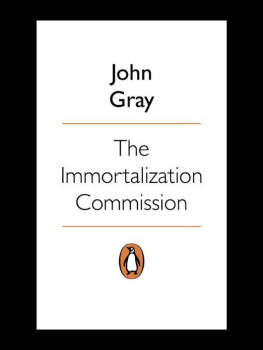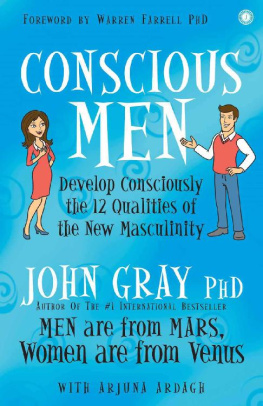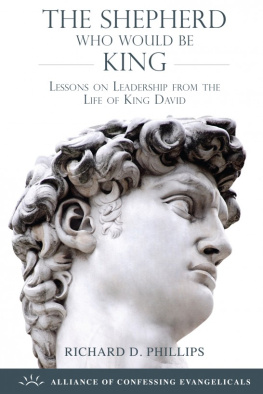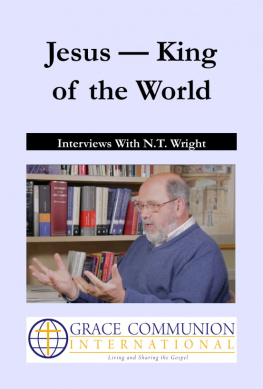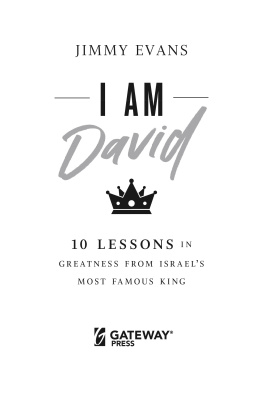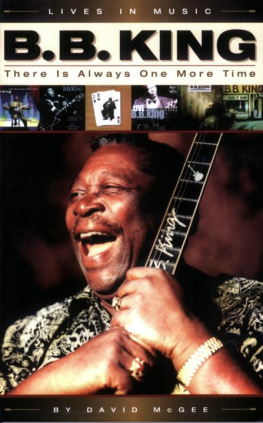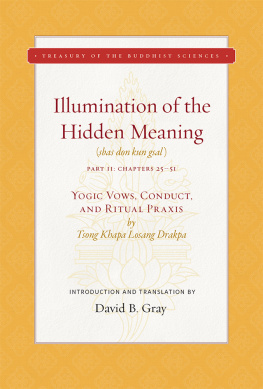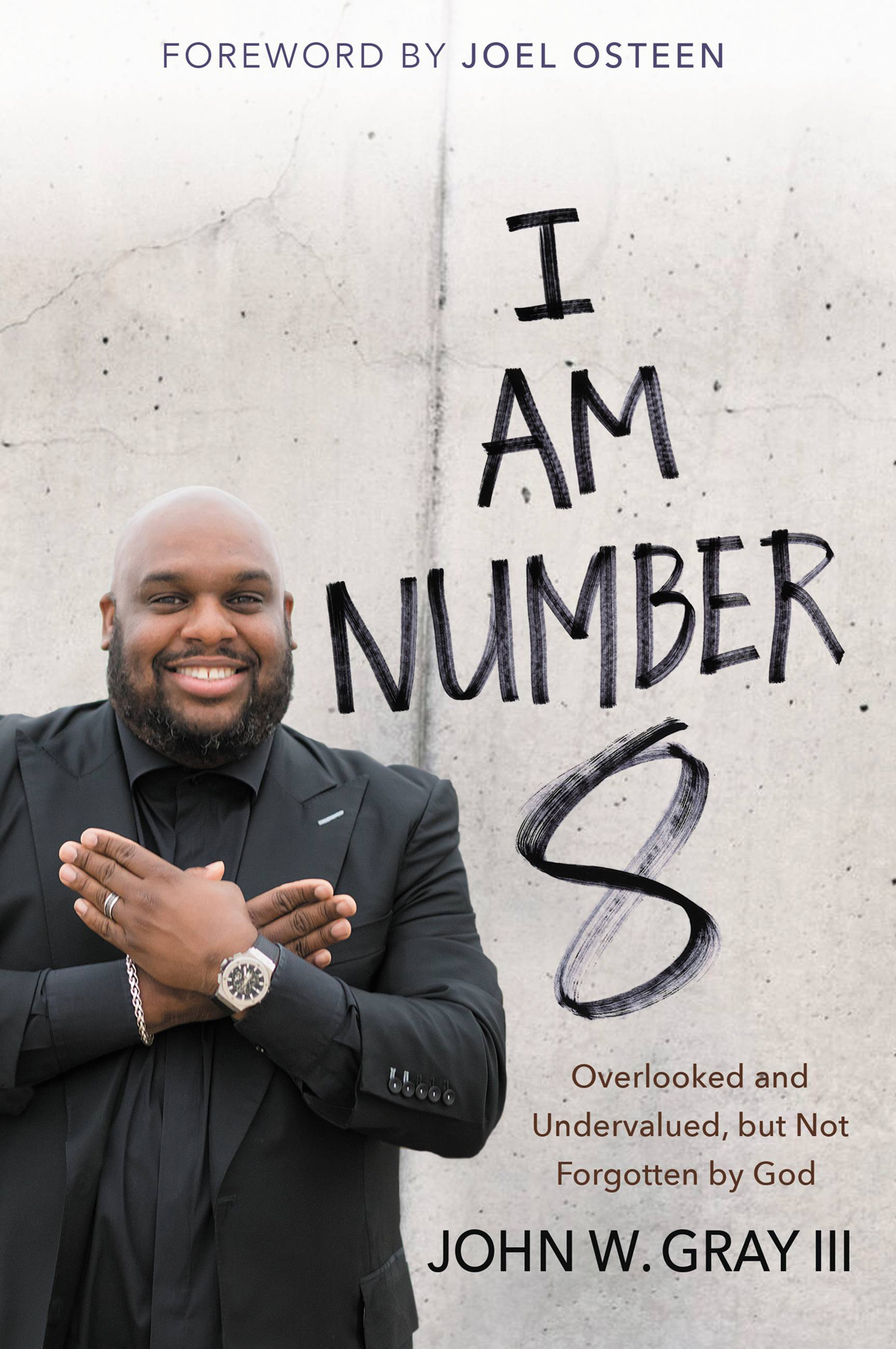Copyright 2017 by John W. Gray III
Jacket copyright 2017 by Hachette Book Group, Inc.
Hachette Book Group supports the right to free expression and the value of copyright. The purpose of copyright is to encourage writers and artists to produce the creative works that enrich our culture.
The scanning, uploading, and distribution of this book without permission is a theft of the authors intellectual property. If you would like permission to use material from the book (other than for review purposes), please contact permissions@hbgusa.com. Thank you for your support of the authors rights.
FaithWords is a division of Hachette Book Group, Inc. The FaithWords name and logo are trademarks of Hachette Book Group, Inc.
The publisher is not responsible for websites (or their content) that are not owned by the publisher.
The Hachette Speakers Bureau provides a wide range of authors for speaking events. To find out more, go to www.hachettespeakersbureau.com or call (866) 376-6591.
Library of Congress Cataloging-in-Publication Data has been applied for.
ISBNs: 978-1-4555-3954-3 (hardcover), 978-1-4555-3955-0 (ebook), 978-1-4555-7116-1 (large-print hardcover)
The Scriptures give many examples of people who did not think much of themselves, yet God called them to do something great. Moses, Gideon, and David were just such people. When God told Moses, perhaps the greatest prophet of the Old Testament, to bring the Israelites out of captivity, Moses said, God, Im ordinary. Pharaoh will never listen to me. I stutter. Gideon, when instructed by Gods angel to stop farming and lead an army against the enemy, responded by saying, How can I do that? I come from the poorest family. I am the least of my fathers house. When the prophet Samuel came to anoint one of Jesses sons to be the next king of Israel, Jesse thought so little of his youngest son, David, that he didnt even bother to bring him in from the fields where he was taking care of the sheep.
I believe that we might not have heard the names of Moses, Gideon, or David had they continued to see themselves the way others saw them. Instead, each of them changed their mind-set and began to see themselves as God saw themas a liberator, a general, and a king.
Psychologists have long known that we will most often behave in a manner that is in harmony with the way we perceive ourselves. Proverbs 23:7 tells us that we become what we think about. This book is an important step in understanding this and more. My good friend John Gray reaches deep within himself to offer you an honest and humorous look at what it means to overcome those hardships, obstacles, and temptations that stand in the way of your true calling.
When you look at John Gray, you see a mighty man of God whose influence and ministry are among the fastest growing in the world today. You see a man who is sought after around the globe for his wisdom, his dynamic speaking style, and his great insights into Gods Word. When you see what John has become, it is hard to imagine that there were ever any giants that stood in his way. Yet, as an only child in a fatherless home, he was dismissed by many as just an insignificant, buck-toothed kid. He was easily forgotten when his classmates were sending invitations and overlooked when choosing teams. But it was from that place of difficulty that John answered Gods call to be a voice for those who feel lost, forgotten, and lonely. It was from that isolation that he now engages with millions in a ministry that continues to thrive and change the world around us.
I encourage you to read every word, consider every thought, and enjoy every laugh along the way as he takes you on a personal journey that will not only encourage you, but also will challenge you to rise up and claim the destiny that God has planned for you.
It happened on a Friday night in Smithfield, Rhode Island.
When I think of revival, I rarely think of any city located in the northeast corridor of the United States. Dont close the book, northeasterners, let me explain! I can admit that in my shortsightedness at the time, I really could only imagine something like this happening in one of the southern statesmostly, the Bible Belt. Places where there is a history of these kinds of moments happening. In truth, nobody was looking for the Spirit of God to unify an entire generation in the middle of Rhode Island. Who really goes to Rhode Island to find destiny? And yet, I was so very wrong. Destiny is exactly what happened in Rhode Island. For the kids who attended that youth conference, and for me.
It was so chilly that day I could see my breath when I got out of the car. As I walked the short distance to the church, I could hear the sound of kids singing praise songs over a heavy bass-driven beat. I couldnt make out the exact song but I discerned the sound of passion. Kids dont fake passion these days. I know hunger when I hear it. These kids? These kids wanted more.
I was raised in church. My mom was a church pianist. Granny was too. My dad was a jazz organist. Thats another story Ill get to later. My point is, Ive been in church all my life. Im also an observer. Those two things mean that I can clearly tell the difference between surface religious performance and authentic passion. The sound I heard on that cold day was the real thing. But even the sound could not have prepared me for the moment I would find myself in an hour later.
After the worship, I walked onto the platform. The kids were so excited, so passionate, the roar of the crowd was deafening. There were at least fifteen hundred youths and adults present, all staring up at me in anticipation of what God might do next. The atmosphere was amazing. As I began the message, I could hear the sound again, only this time, it was a rumbling. My words started flowing in a way they had never before. I was in a moment. As a communicator, as a preacher, you can tell when youre in a moment. There have been many times when I have preached and could feel that I was hitting up against something in the atmospherewhether it was the audiences curiosity or their resistance to what I was sharing, based on whatever differences they brought with them (denominational perspectives and theology, etc.).
But these kids connected to me, and I connected to them. There was something more I needed to say. I started reading from 1 Samuel 16. I shared with them that the Old Testament prophet Samuel had gone into the city of Bethlehem and to the house of Jesse to anoint the future King of Israel. After seeing seven of Jesses sons, Samuel asked the man, Are all the young men here? Jesse said, Well, there is the youngest (1 Sam. 16:11). There was someone, another son, that Jesse had forgotten.
From that moment in the sermon, there was a shift. I started sharing about a young manDavidrelegated to the fields, hidden in his own home, reviled by his brothers, overlooked by his father, but still very much loved and seen by God. Samuel goes on to say in the passage, Send for him; we wont sit down until he comes (1 Sam. 16:11). Jesse calls David, who was doing what he was always doing, watching the sheep. He didnt realize that everything was about to change.


